Cityscapes of Enclosures, Im/mobilities, Abolition
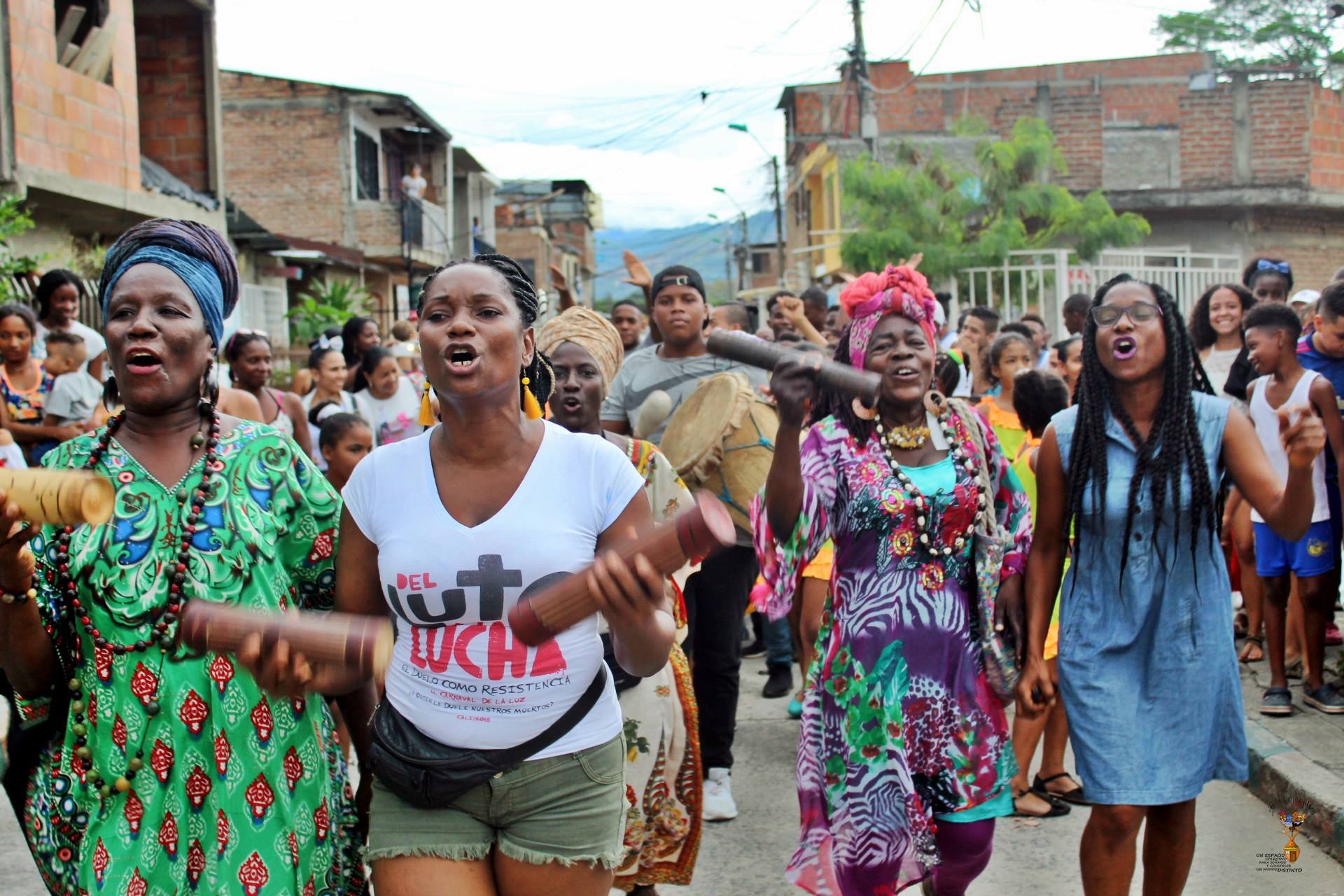
This project is designed to foster a dialogue between community activists, activist researchers, and students to explore, in a year-long program of activities, new venues to challenge and re-imagine the colonial landscapes of cityscapes. This initiative is twofold: first, it investigates structural patterns of spatial violence that shape urban life in contemporary cities of the global south. Second, it also aims at locating and interpreting local experiments of sociality that emerge from the urban margins of increasingly unequal Latin American cities. We ask: How is racism reinforced, negotiated, and contested in the urban front? What are the strategies of resistance developed by Black dwellers to claim their place in the white/mestizo city? How are gender, race, and space mobilized (as both inscription of difference and self-making) to de/colonize the urban?
As a case study, Colombia’s Santiago de Cali presents all complexities to explore these questions. The “Colombian’s Blackest city ” (by some accounts 35% of its 2,4 million inhabitants are Afro-descendants) is the refuge city for thousands of internally displaced populations escaping the armed conflict that has particularly targeted Black and Indigenous territories of the Pacific coast. Most of the Black population in Cali live in the infra-structure-deprived lowlands of the eastside, a borough that concentrates the highest poverty, homicidal violence, unemployment, and illiteracy rates. Cali is also home to vibrant urban marronage politics, making life possible in this seemingly dystopian geography of exclusion. At this phase, our project focuses on this particular location of urban Latin America to explore broader issues that will enhance the ongoing research agenda and strengthen students' academic training on pressing problems of global cityscapes. The set of issues we explore in this project includes, while also exceeding: antiblackness in/as the urban Anthropocene (from high temperatures due to the burning of sugarcane fields, rivers polluted by mercuries from illegal mining to infrastructural decay that exposes Black inhabitants to floods and water shortages); urban enclosures in/as spatial segregation, murderous policing, and incarceration; urban im/mobilities in/as infrastructural violence and in the making-bodies-moving across the cityscapes to occupy specific spaces and positions of exploited and poorly paid economic activities); and palenques urbanos/urban marronage as spatially-based forms of organizing for economic and political autonomy.
The project is led by Jaime Alves (UCSB) with global partners Jan Grill (Universidad del Valle) and Sonia Mirna Quiñonez (Casa Cultural El Chontaduro) and Universidad del Valle, in Cali/Colombia.
Photo by Casa Cultural El Chontaduro.
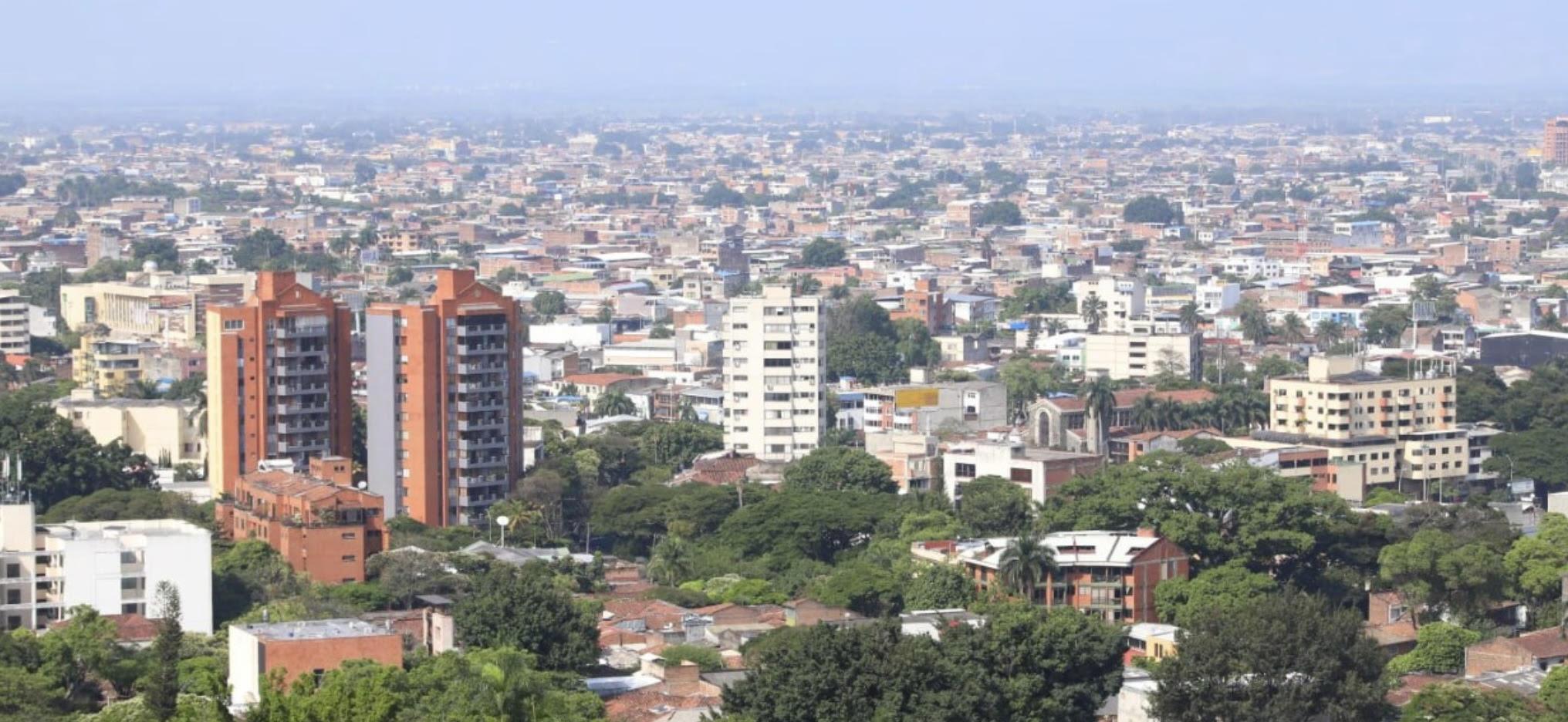
Learn more about this Burdick Global Scholars Program's research activities, seminars, and events organized in Santa Barbara and Cali on their website, Colonialidades Urbanas/Urban Colonialities, linked here.
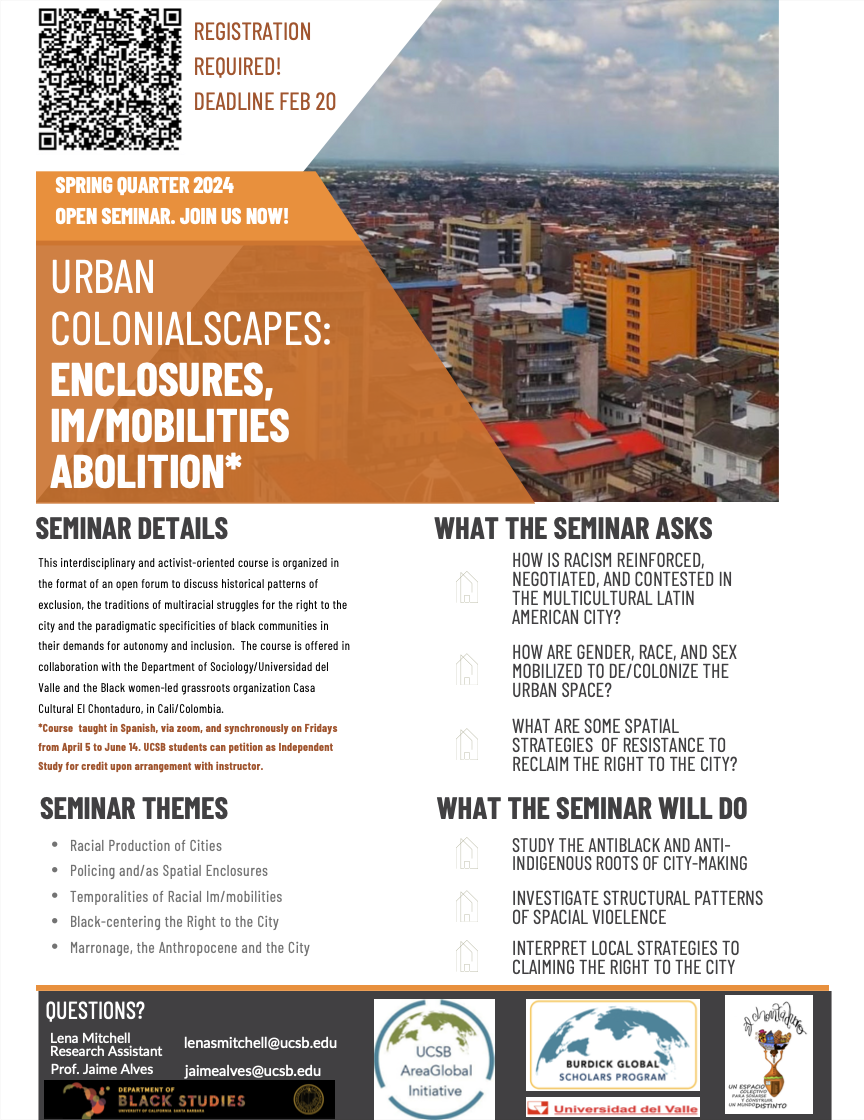
UCSB undergraduate students are invited to register to join the Burdick Global Scholars Program Seminar "Urban Colonialscapes" led by Prof. Jaime Alves (Black Studies) and urban activists scholars. We will be connecting students from UCSB with students from Universidad del Valle in Colombia and the grassroots organization Casa Cultural El Chontaduro. The course will be taught via zoom with at least two in-person meetings. Spanish speaking students interested in issues of social/environmental justice; housing; carcerality and abolition are encouraged to attend. More information and course registration can be found here. For questions, contact Lena Mitchell <lenasmitchell@ucsb.edu>. Learn more about this Burdick Global Scholars Program here.
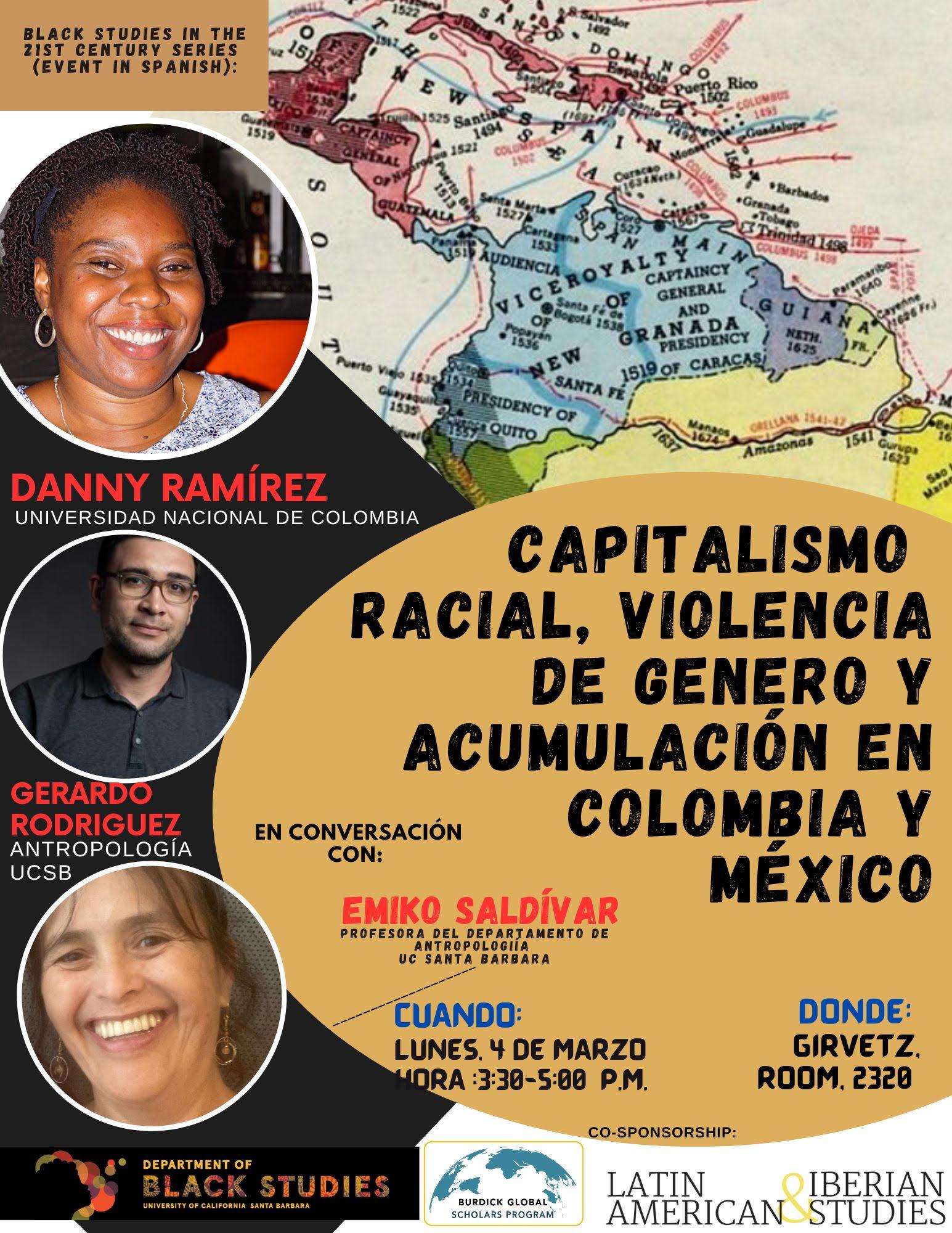
Burdick Global Scholars Program lecture co-organized with the Department of Black Studies and the Program in Latin American and Iberian Studies.
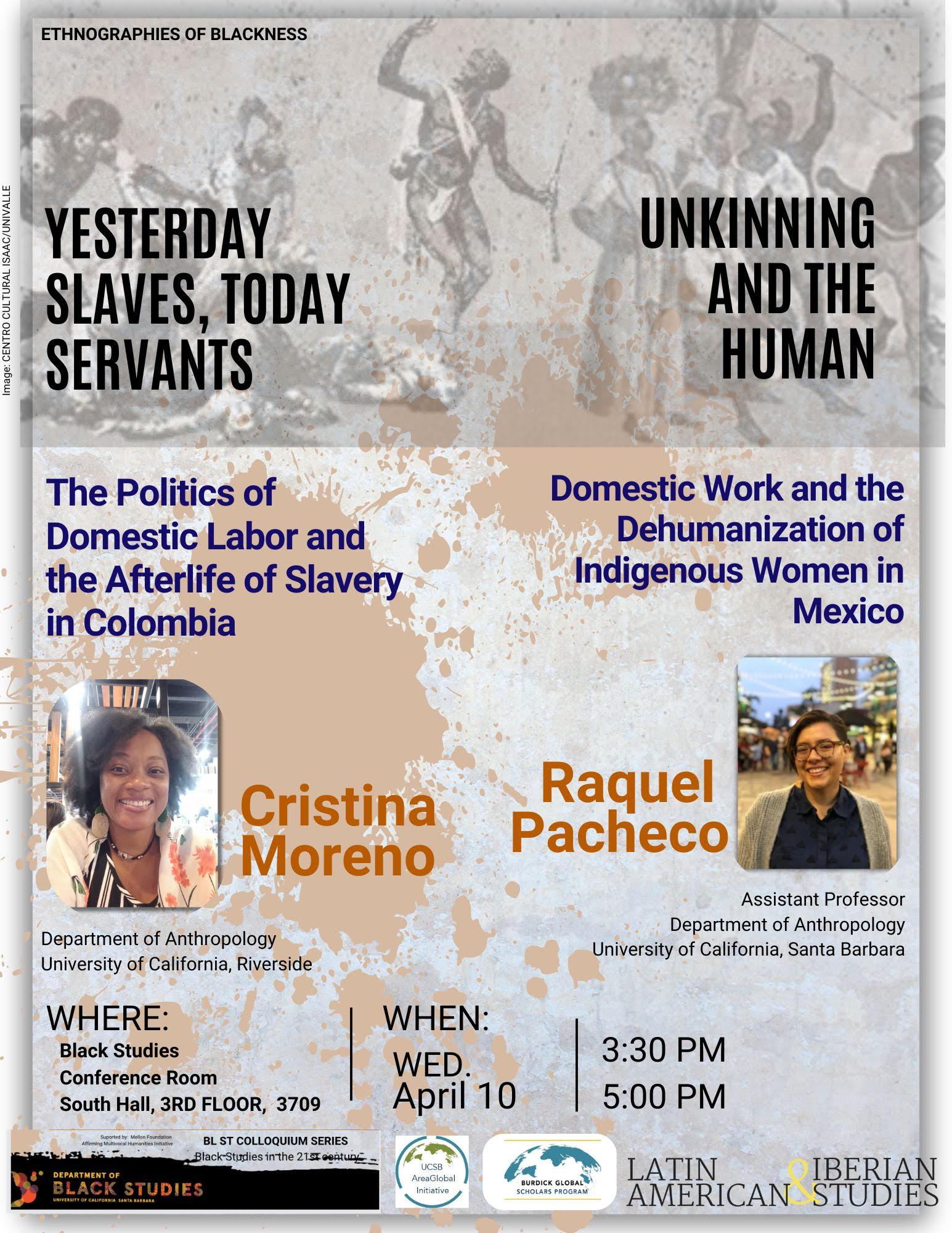
Burdick Global Scholars Program lecture co-organized with the Department of Black Studies and the Program in Latin American and Iberian Studies.